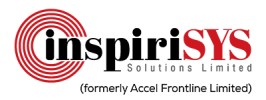i
Thinkitive Technologies
Filter interviews by
Thinkitive Technologies Trainee Interview Questions and Answers
Thinkitive Technologies Trainee Interview Experiences
1 interview found
I applied via Walk-in and was interviewed in Feb 2024. There were 2 interview rounds.
There wew two questions in the test one was a pattern problrm to print and second was a rray problem you have to solve both of the questions
(1 Question)
- Q1. I was not aplicable for this
Interview Preparation Tips
Interview questions from similar companies

(2 Questions)
- Q1. How many types of programming languages?
- Ans.
There are three main types of programming languages: high-level, low-level, and middle-level.
High-level languages are closer to human language and easier to understand, like Java, Python, and Ruby.
Low-level languages are closer to machine language and harder to understand, like Assembly and Machine Code.
Middle-level languages, like C and C++, combine elements of both high-level and low-level languages.
- Q2. There are three types of programming language. 1 - Hgh Level. 2 - Mid Level. 3 - Low Level.
- Ans.
High level languages are closer to human language, mid level languages are a mix of high and low level, and low level languages are closer to machine language.
High level languages are easier to read and write, like Java or Python.
Mid level languages provide a balance between high and low level, like C++.
Low level languages are closer to machine language, like Assembly.

(2 Questions)
- Q1. What is the purpose of the final keyword in Java?
- Ans.
The final keyword in Java is used to restrict the user from changing the value of a variable, making a method not overrideable, or preventing a class from being subclassed.
Final variables cannot be reassigned once initialized
Final methods cannot be overridden in subclasses
Final classes cannot be subclassed
Final parameters in a method cannot be modified within the method
- Q2. The final keyword is used to declare constants, prevent method class inheritance.

(2 Questions)
- Q1. What is the diffrence between == and .equals() in java?
- Ans.
In Java, == compares memory addresses while .equals() compares the actual values of objects.
== compares memory addresses of objects
.equals() compares the actual values of objects
Use == for comparing primitive data types
Use .equals() for comparing objects like Strings
- Q2. == : Compares refrences (memory addresses) of objects. .equals() : Compares to content (value) of objects.
- Ans.
The '==' operator compares memory addresses of objects, while the .equals() method compares the content or value of objects.
Use '==' for comparing memory addresses of objects.
Use .equals() for comparing the content or value of objects.
Example: String str1 = new String("hello"); String str2 = new String("hello"); str1 == str2 will return false, but str1.equals(str2) will return true.

(2 Questions)
- Q1. Write a short java program to check if a number is prime.
- Ans.
Java program to check if a number is prime
Create a function that takes an integer as input
Check if the number is less than 2, return false
Iterate from 2 to the square root of the number, check for divisibility
If the number is divisible by any number, return false
Otherwise, return true
- Q2. A prime number is a number greater than 1.....etc
- Ans.
A prime number is a number greater than 1 that can only be divided by 1 and itself.
Prime numbers are integers greater than 1
They have only two factors: 1 and the number itself
Examples of prime numbers: 2, 3, 5, 7, 11, 13

(2 Questions)
- Q1. What is the difference between HashMap and ConcurrentHashMap?
- Ans.
HashMap is not thread-safe and allows null keys/values, while ConcurrentHashMap is thread-safe and does not allow null keys/values.
HashMap is not thread-safe and can lead to ConcurrentModificationException if modified while iterating.
ConcurrentHashMap uses internal locking mechanisms to provide thread-safety.
ConcurrentHashMap does not allow null keys/values, while HashMap does.
ConcurrentHashMap is more suitable for con
- Q2. HashMap is not thread-safe, but ConcurrentHashmap is thread-safe and allows concurrent access.

(2 Questions)
- Q1. How does JVM optimize method calls?
- Ans.
JVM optimizes method calls using various techniques like inlining, escape analysis, and virtual method resolution.
JVM can inline methods by replacing the method call with the actual code, reducing overhead.
Escape analysis helps JVM determine if objects can be allocated on the stack instead of the heap.
Virtual method resolution optimizes method calls by caching the resolved method to avoid repeated lookups.
- Q2. JVM just Just-In-Time (JIT) compilation, method inlining, and escape analysis for optimization.

(2 Questions)
- Q1. What is Java LAnguage?
- Ans.
Java is a high-level, object-oriented programming language known for its portability and versatility.
Java is platform-independent, meaning it can run on any device with a Java Virtual Machine (JVM)
It is object-oriented, allowing for modular and reusable code
Java is used for developing a wide range of applications, from web and mobile apps to enterprise systems
Popular frameworks and libraries in Java include Spring, Hib
- Q2. Java is ha High level programming language.

(2 Questions)
- Q1. What is the difference between abstract class and an interface in Java?
- Ans.
Abstract class can have both abstract and non-abstract methods, while interface can only have abstract methods.
Abstract class can have constructors, member variables, and methods, while interface cannot.
A class can implement multiple interfaces but can only extend one abstract class.
Abstract classes are used to define a common behavior among subclasses, while interfaces are used to define a contract for classes to impl...
- Q2. An abstract class can have method implements and abstract method, while an interface only contains abstract method (before Java 8) . Abstract classes support single inheritance, whereas interfaces support ...
- Ans.
Abstract classes can have both implemented and abstract methods, while interfaces can only have abstract methods. Abstract classes support single inheritance, interfaces support multiple inheritance.
Abstract classes can have both implemented and abstract methods, providing more flexibility in design.
Interfaces can only have abstract methods, promoting a more strict contract for implementing classes.
Abstract classes sup...

(2 Questions)
- Q1. What is JVM in JAVA?
- Ans.
JVM stands for Java Virtual Machine, which is an abstract machine that enables a computer to run Java programs.
JVM is responsible for converting Java bytecode into machine code that can be executed by the computer's operating system.
It provides a platform-independent execution environment for Java programs.
JVM manages memory, handles garbage collection, and provides security features for Java applications.
Examples of J...
- Q2. JVM stands for Java Virtual Machine.
Thinkitive Technologies Interview FAQs
Tell us how to improve this page.
Thinkitive Technologies Interviews By Designations
- Thinkitive Technologies Software Engineer Interview Questions
- Thinkitive Technologies Java Developer Interview Questions
- Thinkitive Technologies Software Engineer Trainee Interview Questions
- Thinkitive Technologies Data Scientist Interview Questions
- Thinkitive Technologies Software Developer Interview Questions
- Thinkitive Technologies Software Engineer II Interview Questions
- Thinkitive Technologies Software Trainee Interview Questions
- Thinkitive Technologies Junior Engineer Interview Questions
- Show more
Interview Questions for Popular Designations
- Graduate Engineer Trainee (Get) Interview Questions
- Management Trainee Interview Questions
- Engineer Trainee Interview Questions
- Graduate Trainee Interview Questions
- Software Engineer Trainee Interview Questions
- Diploma Trainee Engineer Interview Questions
- Internship Trainee Interview Questions
- Programmer Analyst Trainee Interview Questions
- Show more
Thinkitive Technologies Trainee Interview Process
based on 1 interview
Interview experience
Interview Questions from Similar Companies
|
Software Engineer
92
salaries
| ₹2.8 L/yr - ₹8.5 L/yr |
|
Senior Software Engineer
49
salaries
| ₹4.5 L/yr - ₹14.8 L/yr |
|
Software Engineer2
46
salaries
| ₹4 L/yr - ₹10 L/yr |
|
Software Developer
20
salaries
| ₹2.8 L/yr - ₹5 L/yr |
|
Full Stack Developer
12
salaries
| ₹3.6 L/yr - ₹6.8 L/yr |

Accel Frontline

Northcorp Software

Elentec Power India (EPI) Pvt. Ltd.

HyScaler
- Home >
- Interviews >
- Thinkitive Technologies Interview Questions >
- Thinkitive Technologies Trainee Interview Questions


















